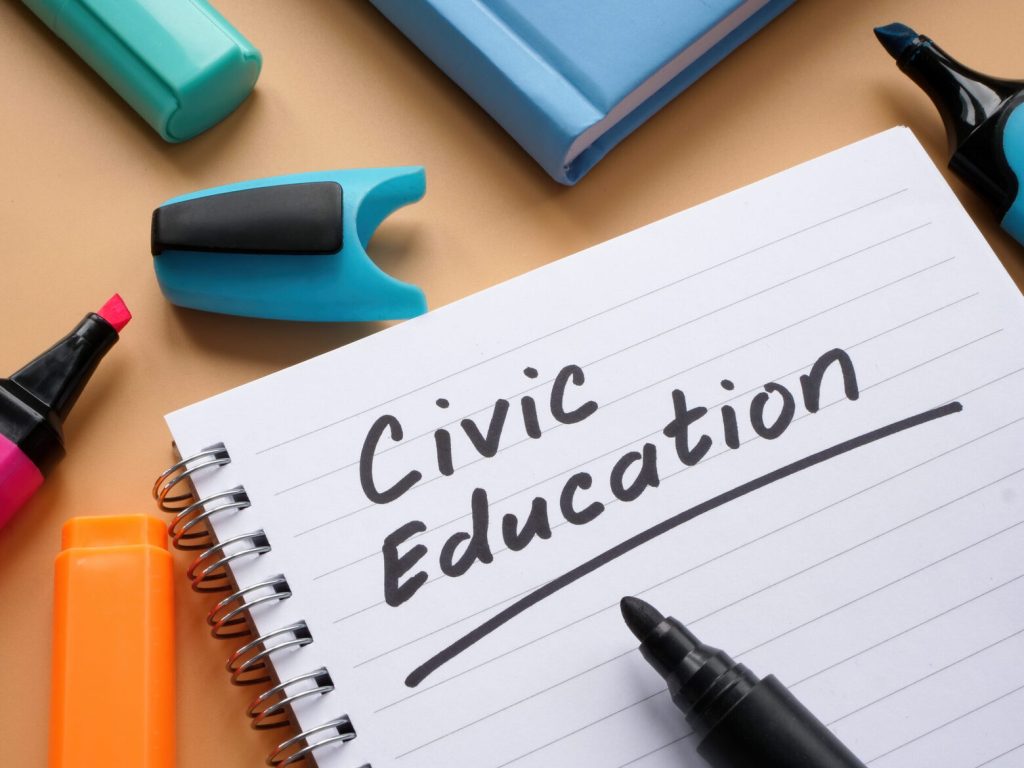
Understanding Civic Education’s Role in Society
A well-functioning democracy depends on informed and engaged citizens. Civic education provides individuals with the knowledge and skills needed to understand their rights, participate in government, and contribute to public discussions. Without a strong foundation in civic learning, people may struggle to make informed decisions that affect their communities and the nation as a whole.
By teaching people about democratic institutions, voting rights, and the responsibilities of citizenship, civic education fosters a culture of participation. It helps individuals recognize the impact of their voices, whether through voting, advocacy, or direct involvement in community initiatives. This sense of empowerment leads to a more engaged population that actively shapes the direction of society.
Civic education also plays a key role in preserving democratic values. Informed citizens are better equipped to recognize misinformation, question authority when necessary, and uphold principles such as freedom of speech and equal representation. When people understand the importance of democracy, they are more likely to defend and protect it from threats, both internal and external.
Encouraging Informed Voters and Political Participation
One of the most direct ways civic education strengthens democracy is by encouraging voter participation. A democracy relies on fair and frequent elections, but if citizens do not understand how the system works, they may disengage or make uninformed choices. Civic education provides the tools needed to navigate ballots, research candidates, and understand policies.
Beyond voting, civic education encourages broader participation in government. It introduces people to the importance of local governance, public hearings, and policy discussions. Engaged citizens attend town hall meetings, contact their representatives, and even consider running for office themselves. When more people take part in decision-making, governments become more reflective of their populations.
A lack of civic understanding can lead to voter apathy. If people believe their vote does not matter or misunderstand how policies affect their lives, they are less likely to engage. Education counteracts this by showing how policies shape daily experiences, from public transportation to healthcare. Recognizing these connections motivates individuals to stay involved in the democratic process.
Strengthening Critical Thinking and Media Literacy
The ability to analyze information critically is essential in a democracy. Civic education teaches individuals how to assess news sources, identify bias, and separate facts from misinformation. In an era where false narratives spread rapidly through social media, these skills are more vital than ever.
Media literacy is a key component of civic education. By understanding how information is presented and manipulated, citizens can make informed choices about what they believe and share. This reduces the spread of misinformation, making public discourse more grounded in reality and less susceptible to manipulation.
Additionally, civic education encourages respectful debate and diverse perspectives. Engaging with opposing viewpoints in a constructive manner helps prevent polarization. When individuals learn how to have civil discussions based on facts rather than emotions, democratic systems become more stable and resilient.
Promoting Equality and Inclusion in Public Life
A democracy should represent all voices, but systemic barriers often prevent marginalized communities from participating fully. Civic education helps break down these barriers by providing knowledge on voting rights, anti-discrimination laws, and the importance of diverse representation in government.
When people understand their rights, they are more likely to defend them. This is particularly true for historically underrepresented groups who have faced voter suppression or legal hurdles. Educating citizens about their legal protections empowers them to challenge injustices and advocate for equal treatment under the law.
Inclusive civic education also fosters a sense of belonging. When individuals from different backgrounds see themselves represented in history and policy discussions, they feel more connected to the democratic process. This sense of ownership strengthens democratic institutions by ensuring that a wider range of voices is heard and considered in decision-making.
Building Trust in Democratic Institutions
Public trust in democratic institutions is critical for stability. When people lose confidence in their government, they may disengage from the system or turn to extremism. Civic education fosters trust by helping individuals understand how institutions function, what their roles are, and how accountability is maintained.
A well-informed public can hold officials accountable. When citizens know how laws are made, how budgets are allocated, and how officials are elected, they can demand transparency and ethical leadership. This reduces corruption and promotes a government that serves its people rather than special interests.
Civic education also clarifies the roles of different branches of government, preventing misconceptions that fuel distrust. Many people feel frustrated with democracy when they do not fully understand how policies are shaped. By explaining these processes, civic education reduces frustration and encourages patience and engagement.
Encouraging Civil Discourse and Compromise
Democracy thrives when people can discuss issues openly and respectfully. Civic education fosters an understanding of compromise and cooperation, teaching individuals that progress often requires negotiation. In a diverse society, conflicts of interest are inevitable, but solutions emerge when people engage in dialogue rather than division.
Civil discourse involves listening to opposing viewpoints without resorting to hostility. Civic education teaches individuals to evaluate arguments based on evidence rather than personal biases. This is particularly important in political discussions, where emotions often overshadow rational debate.
Additionally, compromise is a fundamental part of democratic governance. Laws and policies rarely satisfy all parties completely, but through negotiation, societies can reach solutions that address the needs of the majority while respecting minority rights. Civic education instills the value of working together toward common goals rather than viewing politics as a zero-sum game.
Preparing the Next Generation of Leaders
Future leaders emerge from a strong civic education system. When young people learn about democracy early, they develop an interest in leadership roles and civic responsibility. Schools that incorporate civic education create engaged citizens who are more likely to participate in government, activism, and community service.
Educational programs that include student councils, debates, and mock elections help students experience democracy firsthand. These activities provide a practical understanding of governance and decision-making, inspiring young people to take an active role in shaping their communities.
By fostering leadership skills in young citizens, civic education ensures that democracy remains dynamic. Future lawmakers, journalists, and advocates all benefit from early exposure to civic principles. An engaged generation will continue strengthening democratic institutions for years to come.
Addressing Global Challenges Through Civic Engagement
Democracy does not exist in isolation. Global challenges such as climate change, human rights violations, and economic inequality require collective action. Civic education teaches individuals how their actions can influence these broader issues and encourages international cooperation.
Understanding global citizenship helps people recognize their role in a connected world. Civic education highlights how international policies affect local communities and vice versa. Whether through voting, advocacy, or diplomacy, citizens learn that their participation matters on both a national and global scale.
Additionally, civic education fosters a sense of responsibility toward future generations. Democracies function best when individuals think beyond immediate concerns and consider long-term consequences. By promoting sustainable policies and ethical governance, civic education contributes to a more just and equitable world.
Strengthening Democracy Through Lifelong Learning
Civic education is not limited to schools. Lifelong learning ensures that individuals continue engaging with democratic principles throughout their lives. Workshops, community discussions, and digital resources all play a role in keeping citizens informed and active.
Governments and organizations that invest in adult civic education programs create a more knowledgeable electorate. When people have access to accurate information and resources, they make informed decisions that shape policies and leadership. This strengthens democracy by ensuring that citizens remain engaged beyond their formal education years.
Additionally, fostering a culture of continuous learning prevents stagnation in democratic institutions. Societies evolve, and so do the challenges they face. Civic education prepares individuals to adapt to new political landscapes, technological advancements, and shifting social dynamics while upholding democratic values.


